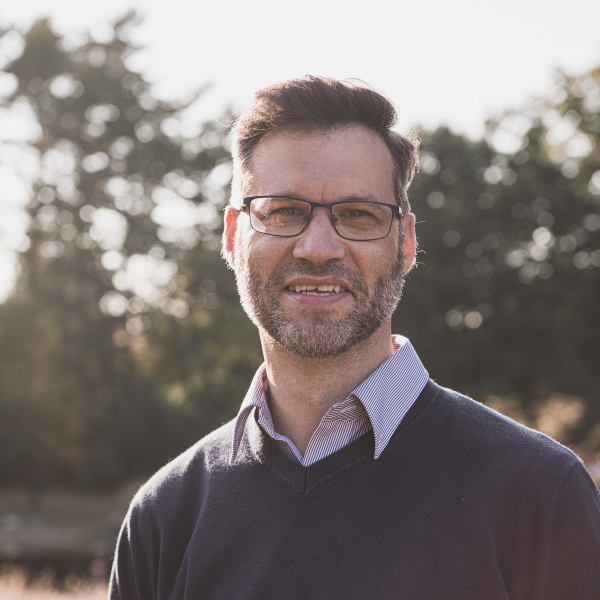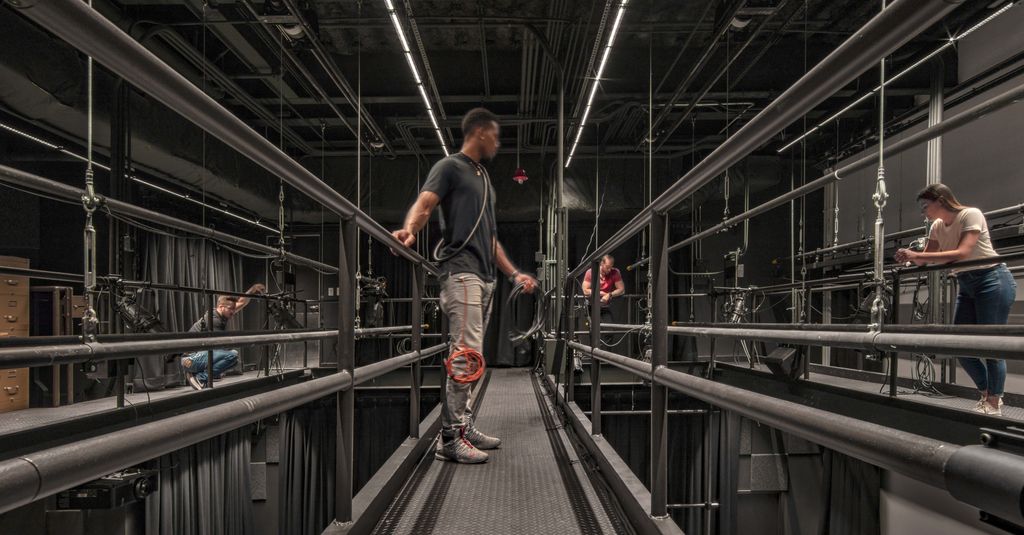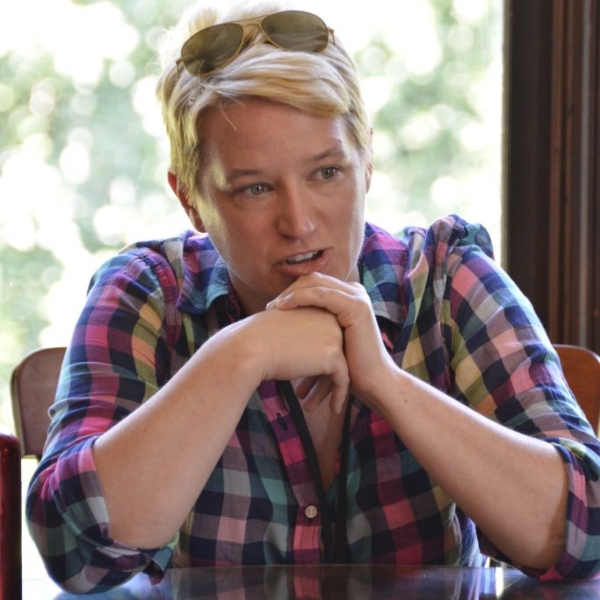Faculty Feature: Joel Brandwine

Aside from training future technical production experts at BU, Joel Brandwine has been a technical director, production carpenter, automation technician, and rigger for over 20 years. His Broadway credits include Jersey Boys, American Idiot, Legally Blond, Catch Me if You Can, Cinderella, American Psycho, 9 to 5, and Evita.
In CFA’s Faculty Feature series, Brandwine talks about BU’s technical production programs, the facilities and opportunities available for students at BU, job outcomes, and what he looks for in an applicant. He also shares the proud feeling of witnessing his students work in all facets of theatre, from regional theaters to Broadway.
Q&A
WITH JOEL BRANDWINE
CFA: How would you describe BU’s MFA Technical Production program?
Brandwine: It is rigorous training in engineering, rigging, drafting, and crew management, all while learning how to be part of a collaborative artistic process. The goal is to create well-rounded people with original ideas who know how to operate in a variety of artistic environments.
CFA: Is the classroom work hands-on from the beginning?
Brandwine: Yes, it’s about 60% hands-on, 40% classroom. The uniqueness of our program is that we offer the flexibility to tailor the work to the individual student. The path through the program is not necessarily linear, it’s a little more fluid. There is a linear path for the technical production courses but the rest of education has a lot more fluidity to it.
[The student] can say ‘I want to learn about lighting.’ That’s great, they can take lighting design courses. They can take audio production or production management courses, too. The assignments will often be based on what they’re looking to get out of this in three years, as opposed to requiring them to take this or that course. There’s not a rubber stamp mold of a BU graduate theatre student. Everyone’s different and we celebrate that.
The uniqueness of our program is that we offer the flexibility to tailor the work to the individual student. There’s not a rubber stamp mold of a BU graduate theatre student. Everyone’s different and we celebrate that.
CFA: Let’s say you are a student searching for the right graduate technical production program, what would you look for first? Faculty, facilities?
Brandwine: I think both. The three things I’d look for are facilities, faculty, and alumni. What the alumni are doing gives you an idea of what opportunities might exist upon graduation. What are the faculty doing? Are they working professionally? This is important because you want to know that your faculty is embedded in the work you want to be studying. What are the facilities like? Are they new, innovative? As a prospective student, it is important to know that the equipment you are using is current and state-of-the-art. You want to be ahead of the curve when looking for a job.
CFA: Tell us about the facilities at BU.
Brandwine: We have a shiny new production center (CFA Production Center) and theater (Joan and Edgar Booth Theatre). That’s a huge advantage of the program. The theater grid is entirely automated; there is a 7,000 sq. ft. scene shop, a small automation package, as well as access to the College of Engineering’s Product Innovation Center, a cutting-edge tool shop with infinite manufacturing capabilities.
CFA: What advantages do students have in choosing BU in Boston, a fairly major market, over another university in a rural area where faculty may not be as distinguished, but there’s less competition?
Brandwine: That’s a conversation I often have with prospective students. When you go to a smaller, more rural market, you are the arts for that area so the budgets are typically a little larger. You will have more opportunities within the school itself to do that work. We can provide you with more outside professional opportunities. I’ve seen our students get work at Mystic Scenic Studios in Norwood (MA) or the American Repertory Theater or The Huntington Theatre. So they get those professional opportunities. There are significant professional opportunities in Boston to round out your education and bolster your resume while in school.
CFA: As the head of the MFA Technical Production program at BU, what do you look for in an applicant?
Brandwine: I think drive, passion, and the ability to work well in a group of people. A lone wolf does not fly at Boston University. They actually need to be a person who’s open to other people’s ideas and is more than willing to listen and learn. Also, they should not come here just to get the degree. If all they want to do is come here and get a degree and go teach, this is not the program for them. We are looking for people where curiosity is their driving force. We want deep thinkers, not just doers.
CFA: The program is designed for who, then?
Brandwine: It’s for people who want the education that will help them to enter the theater world. You have to like math. People [who may not like math] say, ‘I came to art school for a reason.’ The reality is, there’s the WHAT of what we’re creating [but] we’re the ones who are figuring out the HOW. You have to have that.
CFA: What does the job outlook look like for graduates of the program?
Brandwine: We have been very fortunate to have all of our graduates employed professionally in jobs they want. No school can make guarantees when it comes to employment. But I am proud of our students’ abilities to get work in all facets of theatre, from large commercial shops, regional theaters, universities, and on Broadway.
CFA: Regarding the program, what makes you most proud?
Brandwine: For me and I will be honest, I am very proud of the people who’ve graduated from this program and what they’ve been able to accomplish in the last five to seven years. As I said, we do not guarantee employment but…if you want a job in theater, you get a job in theater.
This Series
Also in
Faculty Features
-
December 12, 2023
Faculty Feature: Daniel Parsley
-
September 6, 2023
Faculty Feature: Nancy Goeres
-
March 29, 2023
Faculty Feature: Rébecca Bourgault

Learn more about BU’s Technical Production programs
BU’s technical production programs include courses in welding, AutoCAD, rigging, and production, which are combined with design, art, and management classes to create well-rounded and insightful technicians. Read about our current students, see where our alums are now – working in the highest levels of the industry – and get a sense of our state-of-the-art facilities.

